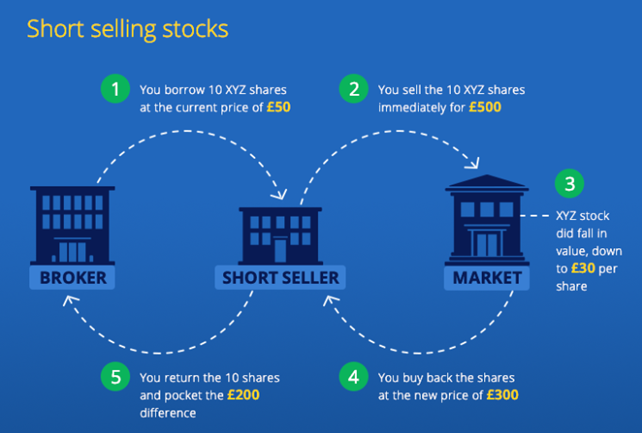
What is short selling and why it (should not) worry Italy
The dynamics and consequences of short selling in light of what has happened in recent days
Last August 26, the Financial Times published an article by Laurence Fletcher and Nicou Asgani entitled "Hedge funds rush to bet big against Italian debt." The two authors drew on some data from S&P Global Market Intelligence to highlight how a group of hedge funds borrowed more than 39 billion worth of Italian government bonds, the highest figure since the 2008 crisis.
The motive for this borrowing would be speculative in nature, with several funds ready to "short" these securities betting on a price drop due to a phase of severe turbulence and instability that would be coming for our country. In particular, there would be four main fears:
- Italy's heavy dependence on Russian gas;
- the possible political instability brought by the September 25 elections;
- ECB stimulus pushing up interest rates;
- The slowdown in sovereign debt purchases by the ECB itself.
As was to be expected, the Financial Times article had a strong media impact and was taken as a cue in the election campaign by virtually all parties. But is there really cause for concern about these numbers highlighted by the British business newspaper? Let's try to understand it together in this article.
What is short selling and how does it work?
Before delving into the analysis, however, it is necessary to understand what short selling is and how it works. Short selling, or short selling, is a speculative financial transaction that is carried out through the sale of unowned financial instruments with the goal of later repurchase. To materialize it, a person who intends to short sell borrows temporarily from an intermediary the financial instruments of his interest, paying interest and pledging collateral on the transaction.
Underlying transactions of this type is the belief on the part of the financial trader that the instruments on which he or she will carry out short selling will be purchased at a lower price than that initially received through the sale. In this case, the outcome of the transaction will be that of a positive total return.
In fact, therefore, these are transactions of the opposite nature to traditional financial transactions, in which instruments are purchased at a given price with the aim of reselling them in the future when that price is higher.

Source: Forex.com
Should Italy be worried by this short selling?
According to the Financial Times article, the value of Italian government bonds borrowed by the hedge fund group would stand at 39 billion euros, the highest level since the 2008 financial crisis. Read this way, the figure certainly sounds like a wake-up call. However, there are some considerations to be made.
First of all, as data provided by S&P Market Intelligence show, it should be pointed out that the increase in government bond lending by hedge funds is not specific to Italy, but is affecting all major Europeans. In France, for example, this stands at 81 billion euros, the highest since 2010; in Spain, on the other hand, the current 19 billion represents an unprecedented figure, and even for Germany, the peak of 121 billion is to be seen as the highest since 2007.
In total, the total value of bond lending on all European countries now stands at 382 billion euros, the highest figure since 2008. The reason for these numbers is mainly due to expectations from the ECB's new monetary policies and the progressive increases announced on government bond rates.
Are BTPs safe?
That of the safety of Btp's is a question that more than one careful saver has asked himself after reading the news published by the Financial Times.
To date, the best indicator of the reliability of our government bonds is always the spread, or the differential between our BTPs and German BTPs. Despite the fall of the Draghi government and the energy crisis, the spread has been holding steady at around 230 basis points since June. Therefore, it does not seem to be affected by this potential short selling going on.
Moreover, while the evolution of the macroeconomic picture in the coming months is unpredictable, our country benefits from an additional guarantee. This is the Tpi, i.e., the instrument launched by the ECB to counter the disorderly widening of Euro area government bond spreads through the targeted acquisition of domestic bonds.
Are you interested?
Leave your info here to find out more and be contacted by one of our financial advisors!
Thank you, you will be contacted as soon as possible
Thank you, you will be contacted as soon as possible
Error while saving data, try again later


